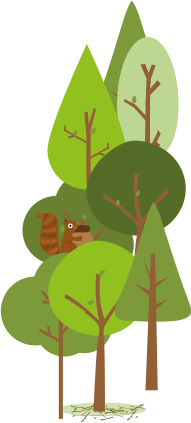

The Lost Word January: Starling.
27th January 2020
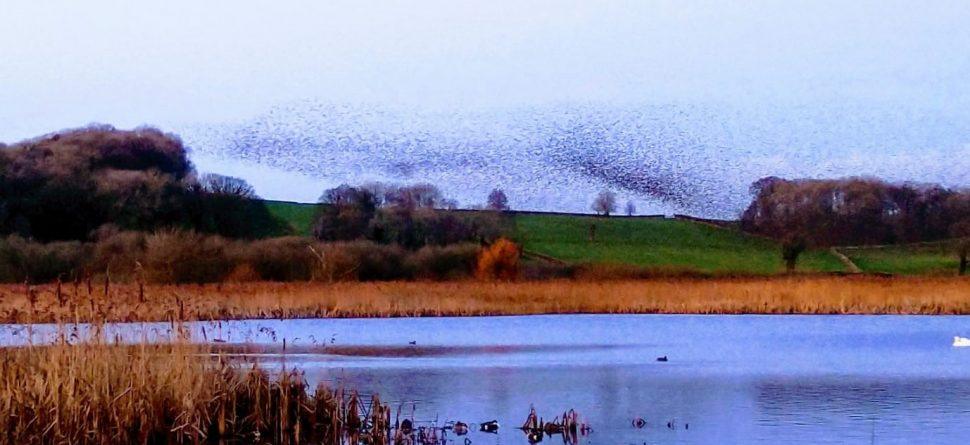
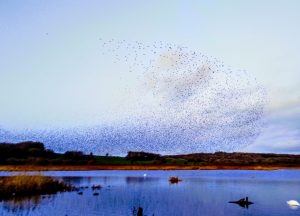
As young art students we’d observe the shifting, darkening shapes, as they collectively flew lower against a dusky sky, but never once did I lift my camera to photograph the nightly ritual of the starling population return to roost on Leeds Town Hall. It was a such an everyday sight as to be unremarkable. I never knew it was called a murmuration until many years later, when rarity increased its significance.
When I returned to Leeds following university, I did not question what had happened to the murmurations. Throwing myself into environmental campaigning, I fought hard to save distant rainforests and UK blanket peat bogs, but thought no more about the Leeds starlings, assuming they had flown elsewhere as a result of the council’s efforts to dissuade the ‘nuisance’ birds from settling on their grand Victorian buildings. And that would be in part true; wrapping the buildings in spikes and netting removed the expense of cleaning up after roosting birds. But the story is about more than displacement.
Since the 1990s the starling population has fallen by 60% and it is now red listed as a bird of high conservation concern. Reasons are unclear but it is thought that disruptions to the food chain caused by pesticides and climate change have impacted on the availability of their food source; soil based invertebrates like earthworms and leatherjackets.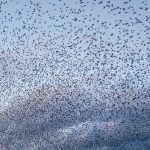
As they disappear from our world, they disappear from our vocabulary too. Starling is one of the Lost Words, nature words removed from the Oxford Junior dictionary in 2015 to make room for more commonly used words for a tech-savvy generation. So horrified at the significance of this de-wilding of children’s language, writer Robert Macfarlane wrote The Lost Words, a book of poem ‘spells’ to conjure up the image of words disappearing from vocabulary. This year Get Out More staff intend to blog each month about our encounters with the plants and animals in the Lost Words.
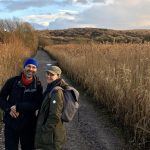
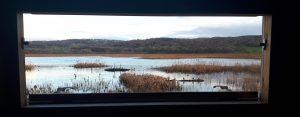
‘Northern lights teaching shoaling fish teaching
swarming lights teaching clouding ink
would never learn the –
Ghostly swirling surging whirling melting
murmuration of starling flock’
Unlike the urban murmurations of old, these were not ignored, but enjoyed like a gala performance. In fact when it was over the audience in the bird hide clapped, and I imagined the starlings taking a well earned bow. These wonders of nature bring us closer to nature and witnessing them forges a connection which strengthens our bond and desire to protect them. But are we too late? Final words again to Robert Macfarlane:
We’ve got more than 50% of species in decline. And names, good names, well used can help us see and they help us care. We find it hard to love what we cannot give a name to. And what we do not love we will not save.”
Annie Berrington
Robert Macfarlane Twitter: @RobGMacfarlane

